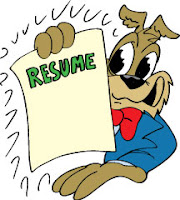But Peter Harris, editor-in-chief of the online job board Workopolis, says, "that's simply not realistic." Some half-truths, exaggerations, or white lies on your résumé, application, or in an interview are okay, he says.
I beg to disagree. Most jobs are simply not worth having to lie. And if those half-truths, exaggerations, or white lies are discovered later, the job itself (not to mention future recommendations) could be at risk.
At Excel Math, we place a high value on integrity both on and off the job. We expect the people we hire to avoid half-truths, exaggerations, and white lies completely.
Here are five steps to acing your next interview while avoiding even a white lie.
Begin the interview with a confident handshake, look the interviewer in the eye, and smile. Sit up straight, act interested, and show that you appreciate the opportunity to meet in person. Your attitude will convey that you value the time the interviewer is graciously giving you. Avoid any semblance of a white lie or half truth such as:
1. The people at my last company were the best . . .
 Although you don't want to bad-mouth your boss and coworkers, you also don't need to lie about them. If you had to overcome some obstacles and hurdles at your last job, be sure to share how you did that.
Although you don't want to bad-mouth your boss and coworkers, you also don't need to lie about them. If you had to overcome some obstacles and hurdles at your last job, be sure to share how you did that.Without mentioning office politics or taking sides, point out how you handled a complaining coworker or customer or motivated an employee to take on more responsibility.
For example, when one of my new hires came to me complaining about another worker in a different department, I asked her to go to him directly and let him know how she would like him to behave differently. Then, if things didn't change, we could talk about other steps she could take to find a solution.
Simply complaining about someone won't make things improve. Much better to talk face to face when problems arise.
2. I don't really have any weaknesses . . .
You don't need to make up a weakness if you are asked to share one. Simply explain that one of your weaknesses is something you're working to turn into a strength.
Then show how your attention to detail, for example, can take more time up front but resulted in cost savings when you found a mistake on the print job before it went to press.

Read more . . .
Let us know how you prepare for an interview. Share your tips and suggestions in the comment box below.
You may also enjoy these articles:
Easy Options for Summer Math Improvement
Higher Order Word Problems for Math Students
Using Number Lines in the Math Class
Financial Awareness for Students
Calming the Frenzy Over Fractions
Excel Math Helps Students Raise Test Scores


No comments:
Post a Comment
Type your comment here